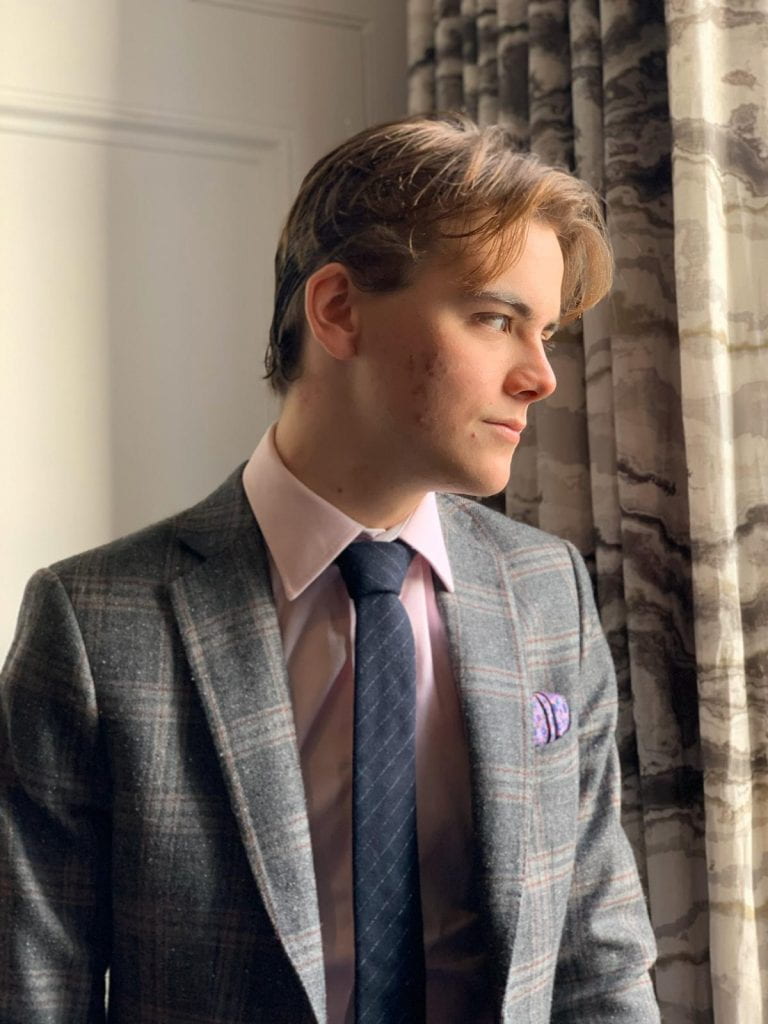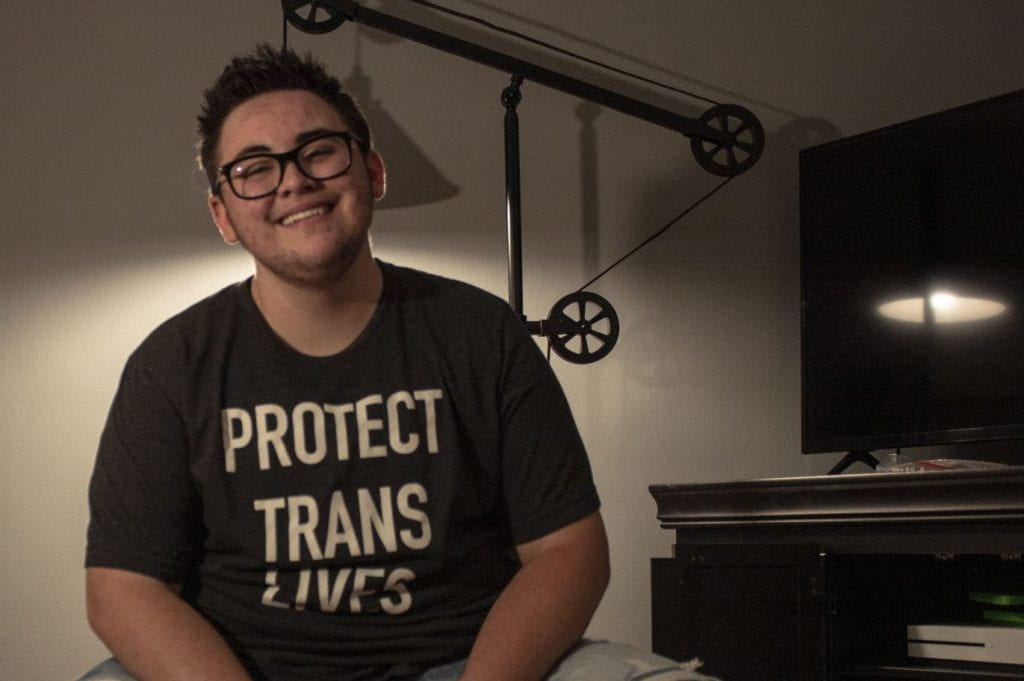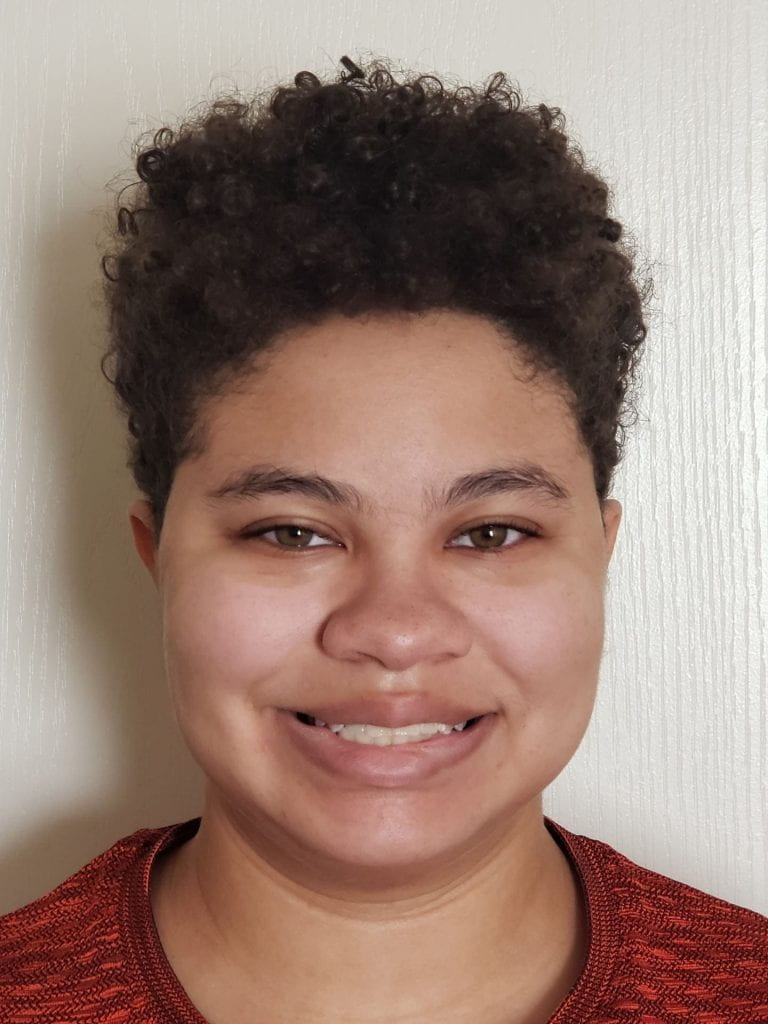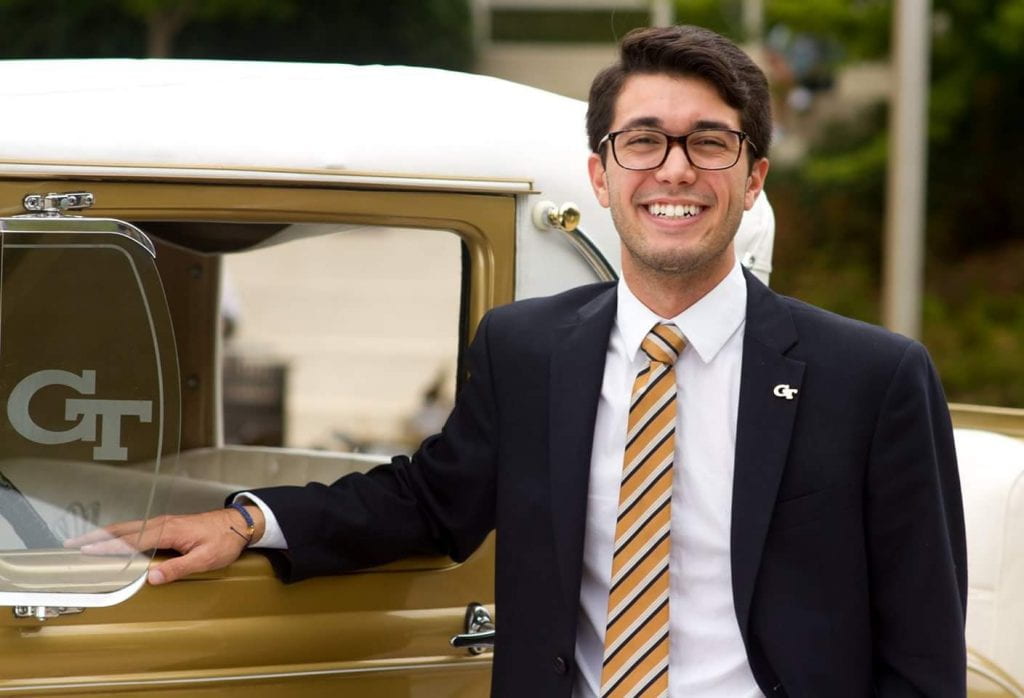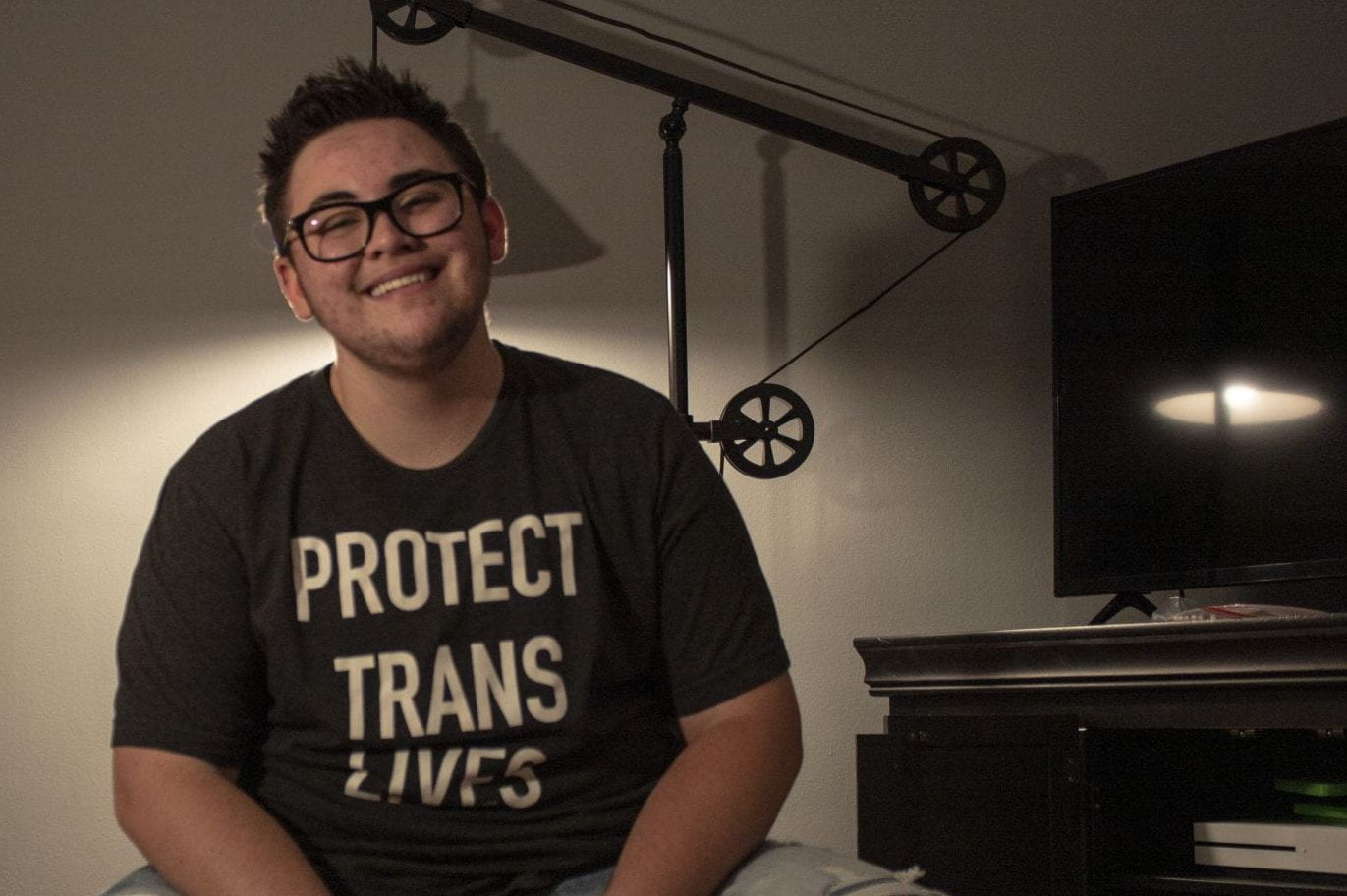Developing a More Trans Friendly Medical Environment
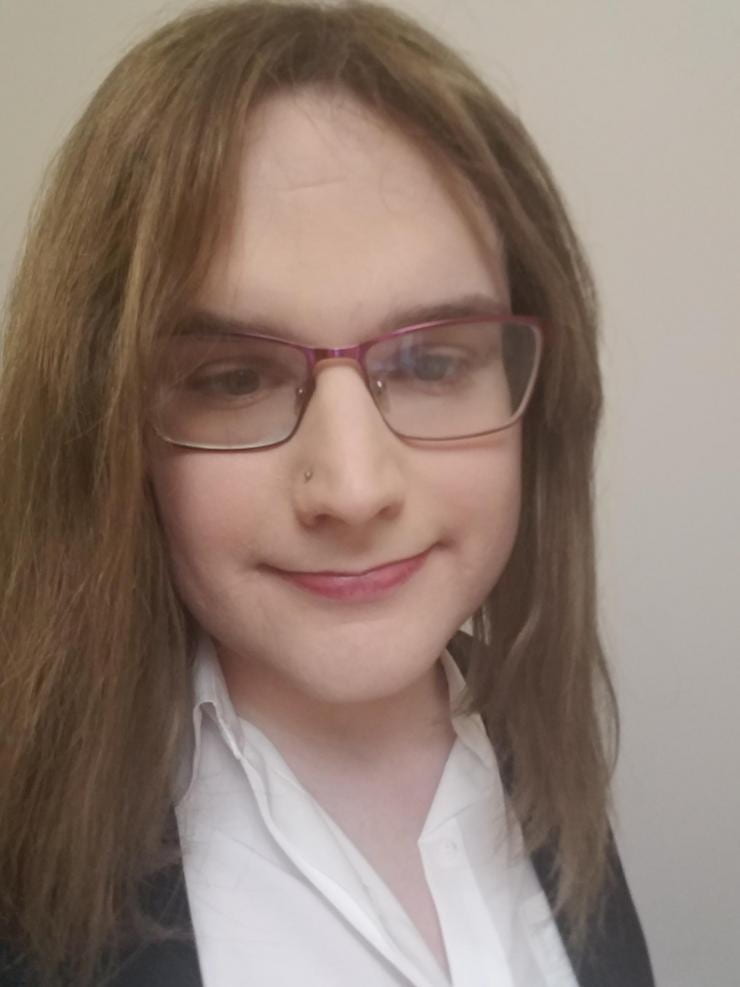
When a transgender or non-binary person goes to a doctor, their physician may be an expert on hormone therapy or gender confirmation surgery but still get pronouns wrong. It’s something Ellie Shivers experiences as a trans woman.
“It feels bad walking into a place that you’re told is trans friendly and being misgendered anyway,” said Shivers, who is an Online Master of Science Computer Science (OMSCS) student.
Shivers works with medical data standards for a living and is using focusing her OMSCS career on how to make the medical industry more inclusive to LGBT+ issues.
One common problem for trans people is medical paperwork. A lot of healthcare records have a field called administrative gender that categorizes gender based on what is on a driver’s license and not how a person actually identifies. This can complicate hormone therapy for patients whose bloodwork accurately reflects their treatment but not their administrative gender.
“You can cause bad data collection if you are not handling gender identity properly and that’s the last thing the trans and non-binary community needs,” Shivers said. “We’re in desperate need of more research and viable clinical knowledge.”
One way to resolve this could be better education for doctors, who often don’t receive much training on LGBT+ healthcare despite requirements to take continuing education classes for their licensing. Although there are conferences specifically for trans and nonbinary healthcare, they are not accessible to all doctors.
While taking CS6460: Educational Technology, Shivers decided to research if there could be online classes to train doctors about trans and non-binary social issues. During the class, she built out the platform and after continued the research in LucyLabs where she did evaluation surveys on the content.
The work is still in the beginning stages. With Covid and the final classes of her degree, Shivers has put the project on hold but looks forward to testing it with physicians’ offices and hospitals.
“Even if I don’t get in into continuing medical education, I’m just excited to be able to contribute on some level to the trans and nonbinary community,” Shivers said. “It’s empowering to feel like I can speak out and makes me feel more confident about my standing among world.”
Andrew Dowdy
How do you cultivate a spirit of inclusivity at the College of Computing?
I’m secretary of Pride Alliance at Georgia Tech. In this position I write the weekly newsletter, which contains information about Pride Alliance and resource center events, as well as a range of things from the Georgia Tech community and beyond that we think our members might find interesting. I like to think helping people hear about and attend all these events makes a different towards making LGBT+ individuals feel more included and making allies more capable with regards inclusivity.
How do you identify in the LGBT+ community?
I identify as bisexual, and my pronouns are he/they.
What does pride mean to you?
I think of pride as being proud of the achievement of self-knowledge and courage that being out as LGBT+ has been for me.
Do you have any advice for someone who is thinking about being more open about their identity at work or school?
I had the band-aid ripped off for me when I was quite young, so I don’t really remember a time when I wasn’t out at school. I think the hardest part is solidifying your conviction in yourself, and after that unsafe spaces can’t really hurt you. It also helps to have a community that you know is supportive and that you can retreat to if exclusionary behavior ever becomes overwhelming.
What does queer community mean to you?
The LGBT+ community is a group I know will be supportive of my sexual identity, and they provide a base I can come to if I’m finding I’m not being welcomed for who I am in that regard.
Greyson Mullins
What does pride mean to you?
More often than not, the existence of trans people are boiled down to our medical transition. There’s a reason I haven’t mentioned my time on hormone therapy or my surgical status. I exist outside of my transition, and honestly that’s the most important thing about pride to me. I am a transgender man, and I am not ashamed of that; however, I am much more than that. I am a student, I love my work in sports broadcasting, I am an aspiring film grip, and most importantly I finally see a future for myself. Those stories are the most important to be told. Ask 15-year-old me, and I would have told you I wouldn’t make it this far. Pride, while it is about being queer and loud about it, is also about being queer and shouting from the rooftops, “Kid, I know you can make it out, because I did, too.”
How do you identify in the LGBT+ community?
I am a transgender man, and I use he/him pronouns.
How do you cultivate a spirit of inclusivity at the College of Computing?
I transferred into GT in the fall of 2020, so my College experience is very different than many other folks my age. The last few months have been hard on all of us, and finishing the semester alone in my bedroom while watching Arkansas, Florida, Tennessee, Texas, Mississippi, and, yes, Georgia, push anti trans legislation has been incredibly difficult. Most of my fellow students are blissfully unaware of how widespread and terrifying these bills are. I don’t get into details with lots of people, but very simple, “Yeah, these are the worries I am facing while attending class and working, and it’s hard,” have prompted some really insightful conversations with my peers.
Do you have any advice for someone who is thinking about being more open about their identity at work or school?
There’s never a perfect time. If you wait until you aren’t scared anymore, you’ll probably never do it. I had taken a week off after my high school graduation and then sent an email to my team. At the end of the day, it is your choice, and there is no universal timeline. Whenever and however you choose to share your truth is the right way for you, and you’re doing great.
What does queer community mean to you?
Being straight and cis-passing in the queer community is an oddly alienating experience, especially having spent my teen years as an out lesbian in Georgia.
What’s one thing allies can do to support trans, nonbinary, and gender non-conforming colleagues?
The easiest and biggest thing I have had coworkers do for me is correct other coworkers when using the wrong pronouns. To this day, I have a hard time correcting people, though those instances are becoming fewer and further between. As a newly out trans person, correcting people is a lot harder and scarier than many cis people believe.
Jaden West
What does queer community mean to you?
The queer community means a lot to me. Once I accepted myself as a member in this community, I began to accept and understand myself in many aspects of my life. For example, I’ve come to learn why I have trouble expressing myself and have since been working on doing so for my own sake and for my loved ones around me. I could go on about what this community has taught me; how it’s made me laugh, cry, and speak out on injustices; how I’ve helped, celebrated, and worked alongside others in the community, and so much more. But I guess to sum it up, the LGBT+ community means everything to me. It’s been there in virtually all shapes and aspects of my life, and I don’t think I’d have it any other way.
How do you identify in the LGBT+ community?
I am a lesbian and use she/her pronouns.
What does pride mean to you?
As someone who grew up not understanding anything about pride or acknowledging I was a lesbian until 17, pride personally feels like an awakening. In my journey of understanding my sexuality, I also grew to understand and love myself better. Being in college also helps with this of course, but meeting other LGBT+ members on campus and around Atlanta has made the journey even more eye-opening and all-around amazing.
How do you cultivate a spirit of inclusivity at the College of Computing?
I work in the College under the wonderful Christen Steele and Alicia Palmquist. I also am the treasurer for GT Pride Alliance. In the past year, I’ve been doing what I can to bridge the two in a way that provides more inclusivity, exposure, and comfort for LGBT+ members and allies in the College. The demographics of the College can already be discouraging enough for under-represented students wanting to branch out and explore their culture, sexuality, religion, etc. I personally felt this in my three years at Tech as a mixed-race lesbian in tech.
The 2020 Virtual Queer Career Fair is our biggest example so far. Thanks to the College’s network, platforms, and allyship to the LGBT+ community, Pride Alliance was able to host a wonderful Queer Career Fair, where Iand Pride Alliance’s professional development chair worked closely with Christen and Alicia to make it as smooth and engaging as possible. Student and employer turnout was the highest out of all the annual Queer Career Fairs we’ve had in the past.
Do you have any advice for someone who is thinking about being more open about their identity at work or school?
Hindsight can be an important part of this process, and it personally helped me in being more comfortable with my identity. When I initially started being more open and out, it felt oddly stigmatizing. In the moment, I didn’t realize this. But looking back on how I felt in those moments as I am now, it was the stigma that society and I had placed onto me that made it so scary and anxiety-inducing to simply be in a space with other people as a lesbian. Time, growth, and self-love have lowered this stigma for me. And eventually, those moments of anxiety or worry about being open dissipated and were replaced with either feeling like a normal person or feeling even more empowered and confident in my identity. So I guess my advice is to acknowledge your thoughts, feelings, and actions or lack-thereof in these spaces. Don’t brush them off! They are valid, understandable, and relatable to millions of people just like you. The sooner you acknowledge these things, the sooner you can begin to grow into an open, confident, and amazing queer person.
What’s one thing allies can do to support trans, nonbinary, and gender non-conforming colleagues?
I personally am still working on being a better ally to my trans, nonbinary, and gender non-conforming colleagues. I think the best thing we can do is to listen to them, ask them, and respect their preferences when it comes to their identity. It comes back to the stigma around being a member of the LGBT+ community. Sometimes people are afraid to ask someone how they should be addressed, in fear that they’re offending the person in question. Sometimes people assume because they don’t know better, and when they’re told otherwise, can get defensive. But the truth is, a person’s identity should not be stigmatizing. There is nothing intrinsically wrong with being mislabeled because they are just labels. But you most definitely get to decide and be comfortable with the labels you make for yourself, and you can assert those labels in the spaces you decide to be in. So, allies, let our trans, nonbinary, and gender non-conforming colleagues do just that, and respect it.


